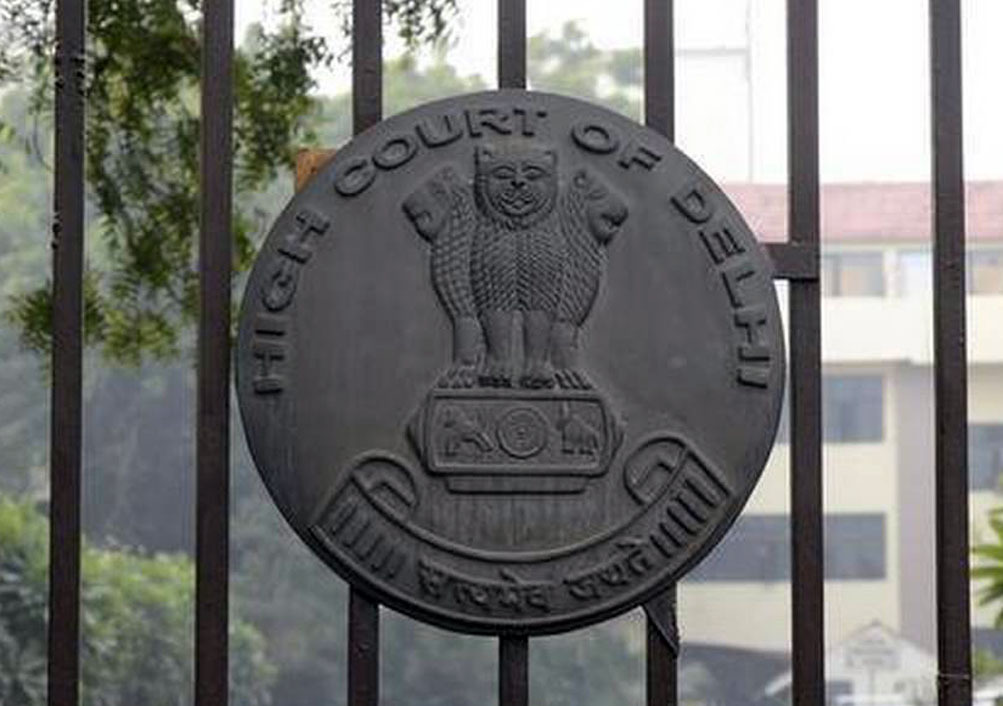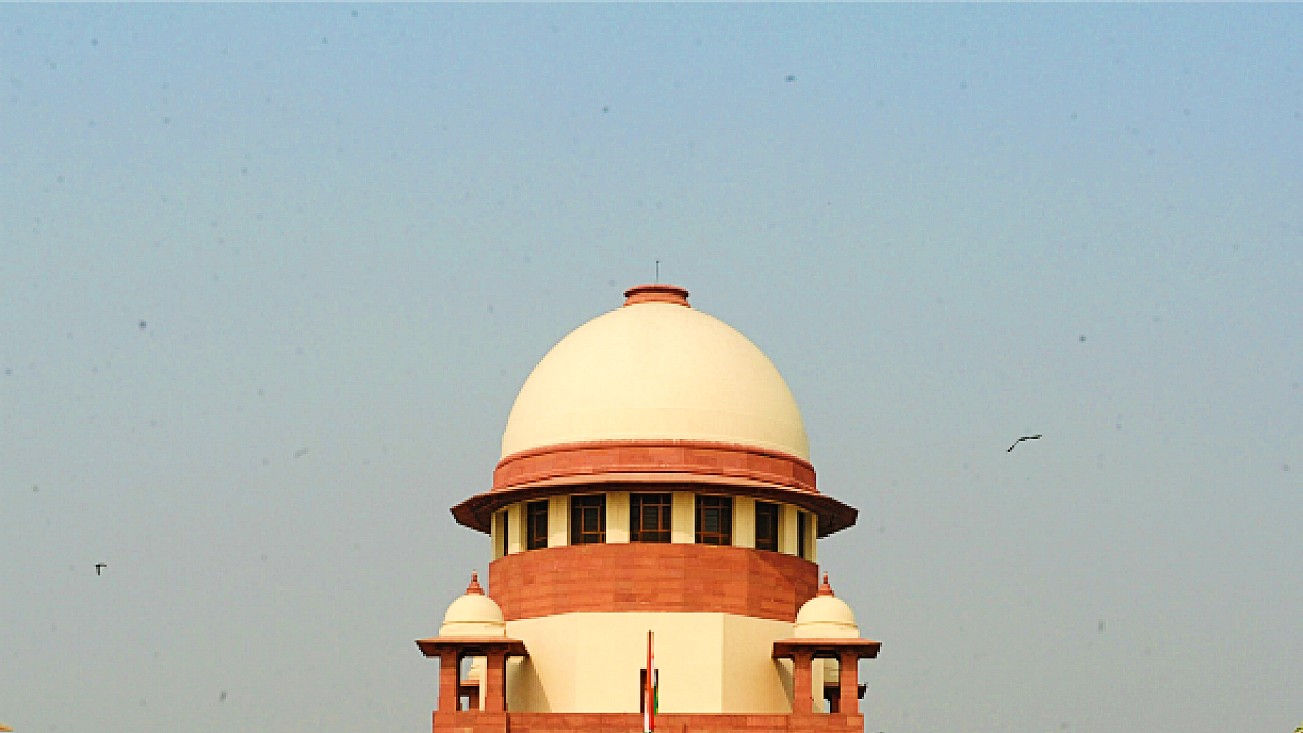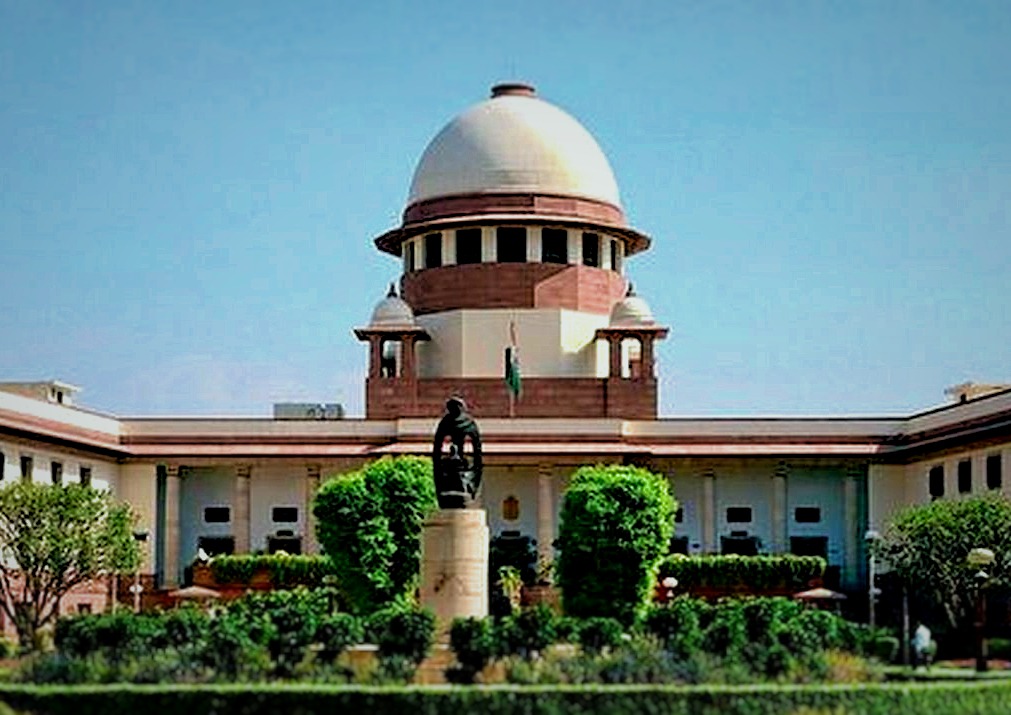Intentional aiding & complicity are the gist of offence of abetment which have not been proved beyond reasonable doubt: Delhi High Court acquits man whose mother set herself on fire
Justice Anoop Kumar Mendiratta [29-04-2024]

Read Order:ZULFIKAR @ BOBBY v. STATE OF NCT OF DELHI [DEL HC- CRL.A.424/2023]
LE Correspondent
New Delhi, May 1, 2024: In a case where a 60-year-old woman set herself on fire, the Delhi High Court has acquitted her son alleged to have abetted her suicide after considering the fact that the prosecution’s case had not been supported by any of the independent witnesses but was only based on the testimony of interested witnesses. The High Court noted that the appellant had made efforts to douse the flames.
It was the case of the prosecution that SI Rizwan along with Constable Rakesh reached at MCD Primary School situated in Seelampur, Delhi where a lady had set herself on fire and had been shifted to Lok Nayak Jai Prakash (LNJP) Hospital by the PCR van. SI Rizwan proceeded to LNJP Hospital, wherein injured Ezaz Fatima refused to give her statement. On reaching back at the spot, the SI met an eye-witness Iftekhar Ali (PW-18), who alleged that Ezaz Fatima along with her son Zulfikar @ Bobby (appellant) had come to the school premises, wherein she set herself on fire in the compound/playground of the school, after taking out a plastic bottle and pouring the contents upon her. The appellant was alleged to have handed over her a lighter. He further alleged that in view of hue and cry, teachers and other staff members assembled at the spot and called the police.
Accordingly, on the statement of Iftekhar Ali (PW-18), FIR was registered initially under Section 309/114/120B IPC. During the course of investigation, Ezaz Fatima expired on 05.11.2013. In the post morterm report, the cause of death was opined as “septicemia consequent upon infected burn injuries”.Section 306 IPC was thereafter invoked after completion of investigation and chargesheet was filed under Section 306/114/120B IPC against the appellant.
Charge was framed against the appellant/accused under Section 306 IPC.The Trial Court had concluded that though the deceased was carrying a plastic bottle, from which she poured the contents over her, the action of appellant in providing a lighter made a clear case of instigation, provocation, incitement or encouragement on his part. As such, the appellant provided the cannon fodder in abetting the deceased to set herself on fire and commit suicide.
The appeal was filed before the Delhi High Court challenging the order on sentence passed by ASJ whereby the appellant had been sentenced to undergo rigorous imprisonment (RI) for five years and fine of Rs 2,000 for offence punishable under Section 306 IPC (in default of payment of fine, to undergo SI for 15 days) with benefit of Section 428 Cr.P.C.
The Single-Judge Bench of Justice Anoop Kumar Mendiratta explained, “To bring a case within the purview of "abetment to suicide" under Section 306 IPC, there must be a commission of suicide and in the commission of said offence, the person who is alleged to have "abetted" the commission of suicide must have played an active role by instigation or engage with one or another person in any conspiracy for doing that thing or intentionally aid by any act or illegal omission”
It was opined that there must be a criminal intent (mens rea) when carrying abetment which could be by way of encouragement, intentional incitement in the form of verbal threats, provocation, persuading, commanding or encouraging someone to commit suicide through acts or omissions. There has to be some proximate active role in the act of instigation or aiding or doing or omitting to act.
In this case, as per statement given by the deceased, which was recorded after registration of FIR, Razi Hasan (PW-19/husband) had called her at the School, since there had been some settlement regarding Talaq. She further stated that Razi Hasan (PW-19) had brought the bottle containing the oil and put her on flames and was aided by Nade Ali (PW-17) and Payamberaza (PW-16) who were also present at the aforesaid time. Further, her son (appellant Zulfikar @ Bobby) had saved her.
Moreover, abetment by appellant was alleged not by way of instigating, urging, provoking or inciting to do an act but was sought to be inferred by way of ‘aiding’ the deceased by providing a lighter which was taken by deceased from the appellant. “It also needs to be kept in perspective that appellant did not remain a silent spectator but immediately intervened to put down the flames with his shirt, which has been seized during investigation and also sustained some burn injuries in the process. Further, the deceased categorically exonerated the appellant of playing any role in the incident and if alive, would have been the best witness in favour of the appellant”, it added.
The facts of the case suggested that deceased Ezaz Fatima and Razi Hasan (PW-19), after marriage had strained relations for several decades since Razi Hasan (PW-19) had re-married without obtaining divorce from the deceased.
“It is well settled that in criminal prosecution when a witness is cross-examined and contradicted with the leave of the Court by the party calling him, the evidence cannot be treated to be completely washed off the record. It needs to be analysed whether as a result of such cross-examination and contradictions, the witness stands thoroughly discredited or can still be believed in regard to a part of his testimony before the Court”, the Bench stated.
It was also clarified by the High Court that the statement before the Investigating Officer under Section 161 Cr.P.C. can be used for contradiction after compliance with Section 145 of the Indian Evidence Act i.e. by drawing the attention of the maker to the parts of the statement intended for contradiction.
On cross-examination on behalf of Amicus Curiae for the appellant, PW-3 (Madan) admitted that Nade Ali (PW-17) was in Room No.3 and was the first one to reach the spot where the deceased had put herself on fire. The version put forth by PW-3 (Madan) was of immense significance since he was posted at the gate of the school and was the first person to meet the deceased and appellant. a Adeliberate attempt was also made by Nade Ali (PW-17) to aggravate the role of the appellant, which put a question mark on his veracity. The witness being related to Razi Hasan (PW-19) was also an interested witness and his testimony needed to be considered with caution. Moreover, the presence of Nade Ali (PW-17) and Iftekhar Ali (PW-18) prior to the deceased setting herself on fire stood refuted by PW-3 Madan and the aforesaid contradiction went to the root of the prosecution case. Thus, the testimony of PW-17 & PW-18 couldn’t be relied for convicting the appellant.
Since the case of prosecution had not been supported by any of the independent witnesses, but was only based upon the testimony of Nade Ali (PW-17) and Iftekhar Ali (PW-18), who were interested witnesses under influence of Razi Hasan, the Bench held that it would not be safe to convict the appellant.“Intentional aiding and complicity are the gist of the offence of abetment which have not been proved beyond reasonable doubt, in view of serious infirmities in the testimony of witnesses”,the Bench observed.
Thus, setting aside the judgment of conviction passed by theTrial Court, the Bench acquitted the appellant subject to his furnishing personal bond in the sum of Rs10,000.
Sign up for our weekly newsletter to stay up to date on our product, events featured blog, special offer and all of the exciting things that take place here at Legitquest.




Add a Comment